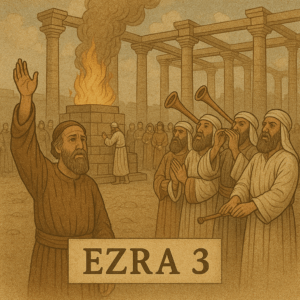Beyond sin offerings: Addressing specific wrongdoings in Leviticus 5.
While Leviticus 4 focused on unintentional sins, Chapter 5 introduces the concept of trespass offerings. These sacrifices dealt with specific transgressions against individuals, the community, or even sacred things. They served as a means of seeking atonement, restoring what was broken, and upholding ethical conduct within the Israelite society.
A Range of transgressions: From dishonesty to unintentional oaths.
The chapter outlines various situations where a trespass offering might be required, such as lying under oath, violating someone’s trust, mishandling sacred objects, or even uttering careless oaths. This spectrum highlights the importance of personal responsibility and ethical conduct in all aspects of life.
Restitution and sacrifice: A two-pronged approach to reconciliation.
Leviticus 5 emphasizes the significance of both restitution and sacrifice in the process of seeking atonement. The offender was not only expected to offer a sacrifice but also to make full restitution to the wronged party, whenever possible. This combined approach aimed to restore both the relationship with God and with the affected individual or community.
The value of confession and public acknowledgment.
The act of bringing a trespass offering often involved public confession of the wrongdoing. This served as a reminder of the importance of taking responsibility for one’s actions and acknowledging the impact they have on others.
Beyond Ritual: Modern applications of the trespass offering principles
While the specific practices of Leviticus 5 are no longer directly applicable, the underlying principles offer valuable lessons for our modern lives:
i. Take responsibility for your actions: Acknowledge your mistakes and actively seek to repair any harm caused.
ii. Seek forgiveness: Approach those you have wronged and strive to mend broken relationships.
iii. Practice ethical conduct: Uphold honesty, integrity, and respect in all your interactions.
iv. Consider the impact of your actions: Be mindful of how your words and deeds affect others.
Conclusion.
Leviticus 5 sheds light on the concept of trespass offerings, revealing their role in seeking atonement for specific transgressions, restoring broken relationships, and promoting ethical conduct within the community. By reflecting on these principles, we can navigate our own journeys of personal responsibility, reconciliation, and ethical living in the modern world.




